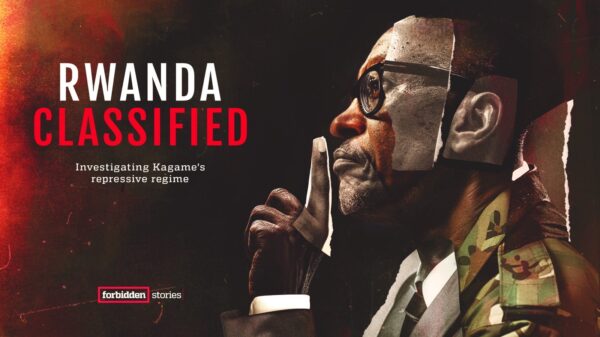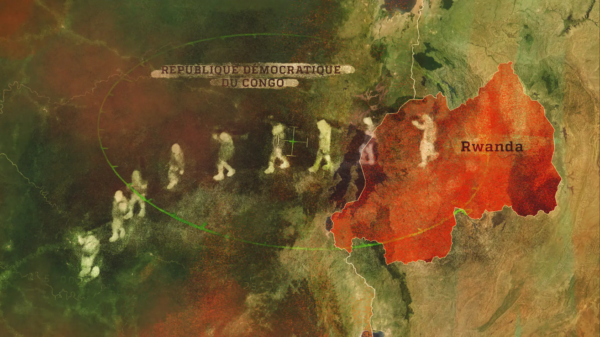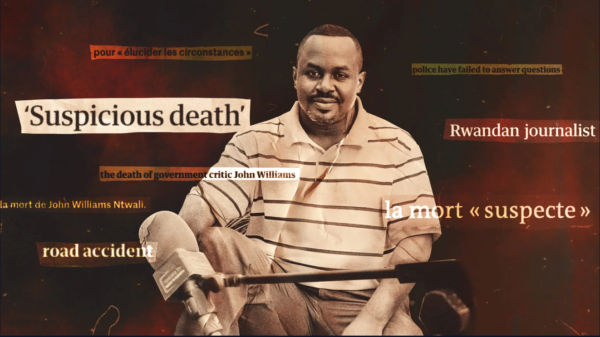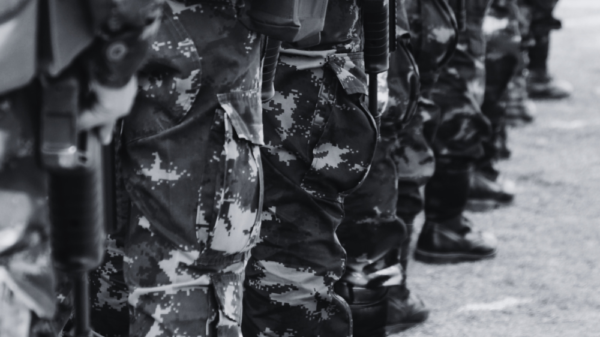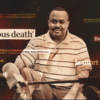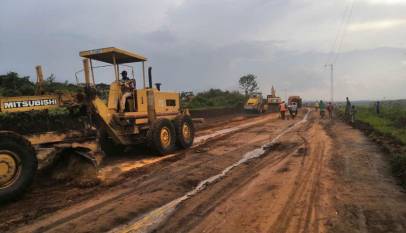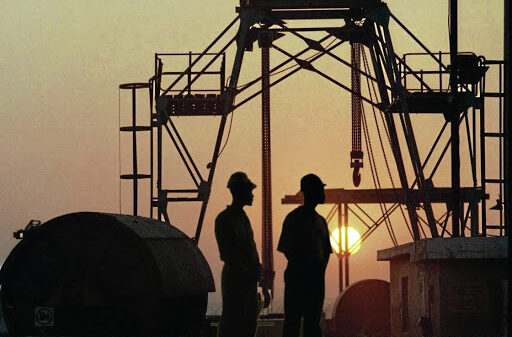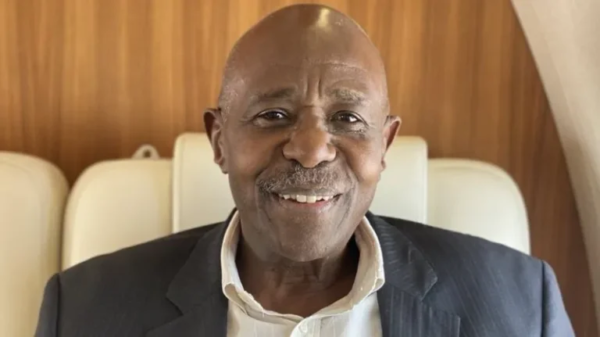About 1.5million people in Rwanda’s capital Kigali are back in a government-instituted lockdown beginning the night of January 18. This lockdown is to control the spread of new COVID cases in the city. Other regions of Rwanda will only have to observe a night curfew beginning early evening.
For tens of thousands of families, the 15 day stay-at-home order brings back terrifying memories of the two month lockdown from mid-March to May last year. They will need direct food deliveries from the authorities, or money from family. Friends and neighbors are encouraged to help each other out to fend off starvation.
As we report, according to the government’s own data, food promised during the first lockdown didn’t reach many of the households that it needed to in Kigali. The situation was not too different in other regions, which also have extremely vulnerable communities that depend directly on the local and central government for survival.
For the latest lockdown, perhaps very aware of the silent unhappiness, Local Government Minister Prof Anastase Shyaka was dispatched to national media to address concerned residents. In the appearance on state TV, he said the government was fully aware that people will need food.
“We know many people in Kigali get their daily food from the day’s work,” he said. “No one should be worried about how they will survive in the next two weeks of the lockdown….the issue of food shouldn’t be among your concerns, rather worry more about how we can overcome this pandemic, how do you survive safely during this period.”
Ongoing government promises for food relief are not always kept, and many logistical difficulties such as food acquisition and distribution have hindered government efforts. For those who expected food in the previous lockdown and never received, it’s difficult to believe this time will be different.
In Gicumbi district, Ngondore cell, Byumba sector, there is a government housing estate built for the most vulnerable. Residents depended on public funds for almost everything, even before the pandemic. During the lockdown, this reliance was even more critical.
Uwayezu Claudine, a mother of three, told us in November last year, the food indeed came, but she and close neighbors didn’t receive it. She said: “The village head would choose who gets the food. Deliveries were made three times during the lockdown yet me and my neighbours got nothing. I had to beg for food from others who got it. It was very unfair.”
The villagers there asked that we protect their identities to allow them to speak freely. Six different residents who received the food aid in Ngongore cell said separately that local officials had informed them privately that for them to get food, they had to agree to share it.
In a different sector of Nyakabungo, vulnerable people designated food relief also said they didn’t receive. One woman told us she had to ‘pay’ a bar of soap to the village head to be eligible for the next delivery.
About 60% of Kigalians may need food aid
Many regions of Rwanda encountered issues with food delivery logistics over the course of 2020. In Nyamagabe district, district authorities announced in August that several local officials had “resigned” after issues were identified. These issues were related to the lists of people meant to receive food aid.
In early April last year, reports emerged in several Kigali villages of food shortages. This later appeared not to be a shortage, but a last-mile distribution bottleneck. Food was in the hands of officials and ready for distribution, the cause of the delay is unknown in this specific incident.
In Kibenga cell, Ndera sector, Gasabo district, Police said several village leaders had been arrested on accusations of hoarding government food for themselves, depriving residents during the tough lockdown.
Latest population figures show that Kigali has more than 370,000 households. Government planning for food delivery, which also involved civil society groups, was set to reach 212,882 households; 57% of households in the capital city.
However, the government’s internal data from May said only 55,272 households got the food. In other words, less than 25 percent of homes that were designated relief food, actually received it.
In his state of the nation address on December 21 last year, President Paul Kagame said 5,000 tonnes of food had been distributed countrywide during the national lockdown, and in specific districts that had at one point or another been placed in lockdowns. He did not give details.
The food came from the country’s strategic reserves, donations from the private sector, and NGOs that work directly with local entities.
In pre-pandemic Rwanda, everyone was placed in one of four socioeconomic categories, called Ubudehe. Category one was designated for the extremely poor and those dependent on direct handouts from the government. They account for at least 34% of the population.
Category 2 was for those who are somewhat self sufficient. Category 3 is for the country’s middle class. Logically Category 4 is for the elite. These levels of socioeconomic status determine what government benefits residents and their families are eligible for. Healthcare for example, is largely single payer for category 1 Rwandans. Whereas category 4 (and some category 3) are usually expected to pay for their own health care. Lastly, categories 3 & 4 are supposed to pay for their own university education; They do not get government scholarships.
However, in the era of COVID-19, the difference between these categories is more blurred than ever before. Apart from the wealthy, and a small middle class, nearly everyone else now needs help from the government.
A government report issued in May to take stock of the state of the country during the pandemic read: “The current COVID-19 crisis affects many households, opportunities to supplement household incomes by casual labour are not available or limited during the lockdown.”
The statement then continues to address high food prices and government welfare; “Additionally, raising staple food prices puts an additional burden on the vulnerable households. This implies that households that were in a vulnerable situation even before the COVID-19 (Ubudehe category 1 and 2) are now in a more insecure situation than before. It also implies that households that were not yet living below the poverty threshold before the COVID-19 (Ubudehe category 3) will be negatively affected by the lockdown and by social distancing and prevention measures in the transition phase after the lockdown.”
The social economic categories of 1,2,3 and 4 have since been changed and modified to better accommodate more people.
More casualties of lockdowns
When the national lockdown was imposed in March last year, many didn’t expect it would leave casualties too. Three teams of YouTubers were arrested at different times by the authorities in different neighborhoods as they sought to interview residents about the food deliveries.
One of those teams who ran ISHEMA TV YouTube channel, Niyonsenga Dieudonne alias Cyuma and his driver are still in prison. This team and the others had made it their agenda to go to different neighborhoods producing videos of locals crying of hunger due to the Coronavirus lockdown. These channels also carry videos of people fighting to get small portions of food being delivered by government agencies. The plight of these YouTubers caused a controversial project to remove a tag of ‘journalist’ from them, though it was abandoned.
The pain that many of the needy Kigalians went through in March to June 2020, could be the same that some are bracing for during these two weeks of the lockdown.
Government says the lockdown is necessary to put a halt to the spread of the virus. For the past month, infections in Kigali alone accounted for more than 70% of the daily total cases. First, travel between all the districts was stopped. That, it seems, didn’t work. And so it was decided, to isolate Kigali, to see how the cases evolve.
The downside though, the impact of the lockdowns is far reaching. The most heavily impacted groups are not entirely the same as those who suffer from extreme or chronic poverty normally; those reliant on casual wage labour and household enterprises for large portions of their income will be the ones mostly affected.
The worst affected by the lockdown are workers in the areas of tailoring, carpentry, hair cutting, lady saloon, knitting, electricity, hospitality and tourism, plumbing, welding, ordinary farmers, small traders, traditional healers, moto taxis riders – among many other groups.
Kigali City Mayor Pudence Rubingisa and his team announced to media on Thursday this past week that they had a plan to deliver food aid to 70,000 residents. They also said at least 1,000 volunteers had been mobilized to do the door-to-door deliveries.
These needy Kigalians will be hoping that the promise by Local Government Minister Prof Shyaka and Kigali administration will not stop at what was aired in the media; but that the food will actually reach them.

